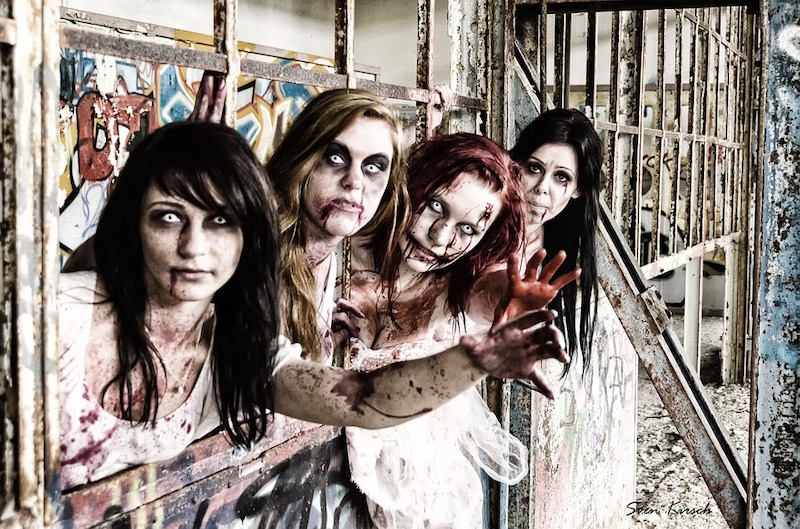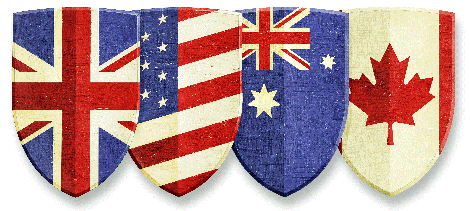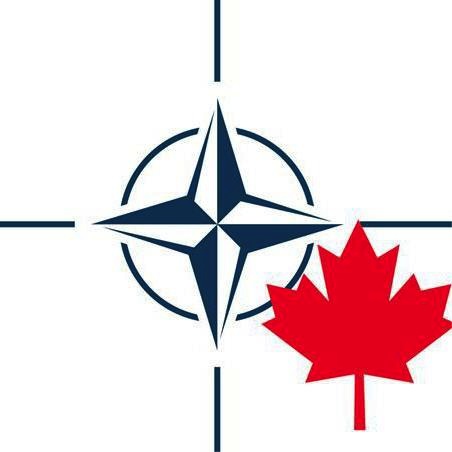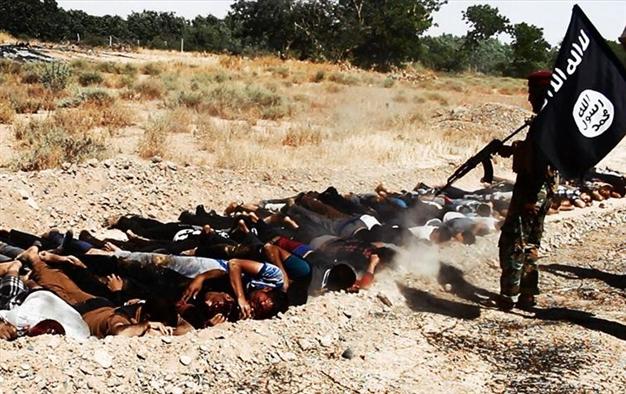Western culture has been fixated with zombies for quite some time, at least since George Romero’s seminal film, Night of the Living Dead (1968). The trope of the shuffling, flesh-eating, reanimated corpse has remarkably evolved into a rich genre of social and political commentary. This is particularly true of AMC’s, The Walking Dead, which occupies a unique place in the universe of zombie fiction. As a recurring television show based on a lengthy comic book series by Robert Kirkman, it provides the viewer with the opportunity to imagine the societal repercussions of a hypothetical zombie apocalypse as these repercussions become manifest over a protracted period. Normally, films featuring a zombie plot compact their storyline into a relatively short narrative centered on the protagonist’s immediate struggle for survival. This significantly limits the potential for an exploration of issues relevant to human social and political organization in such a context. The Walking Dead’s expansive timeframe allows characters in the show to struggle with some of the philosophical issues related to human social structures and governance, abstractions that they are only prompted to consider once the dust from the initial shock of the zombie apocalypse settles and concern passes from that of immediate survival to that of reordering what remains of humanity. The ethical dimensions of the show are widely discussed, but analysis tends to be focused on the moral dilemmas faced by individual characters. While this is certainly an element of the show that deserves mention, lately the show has reached a scale that showcases some of the problems that beset states and their relationship with one another – in other words, problems of international relations. This deserves more analysis.
In The Beginning, Everyone’s The Walking Dead (Season 1)
The Walking Dead focuses on a deputy sheriff in small-town Georgia, Rick Grimes, who wakes up from a coma in an abandoned hospital only to learn that society has collapsed under the weight of a global pandemic whilst he was in his comatose state. The pathology of this contagion is fairly straightforward: it causes dead corpses to reanimate as zombies (or “walkers,” in the show’s vernacular) and feed on the flesh of the living, who in turn succumb to wounds sustained by the zombies’ bites, reanimate, and seek out their own living victims in a never-ending cycle of carnage. Rick has to evade the hordes of these flesh eaters (who, it becomes abundantly clear, quickly come to outnumber the living) while he looks for his wife and son, who had to flee upon the onset of this disaster.
After he finds his family, Rick’s mission shifts to securing a future for his son in this primeval world of flesh, blood, and teeth. From Season 2 onward, The Walking Dead is essentially an odyssey for Rick, as he encounters other survivors of the zombie apocalypse with whom he must forge bonds in the interest of mutual security. It soon becomes evident that the danger posed to humans in The Walking Dead comes only indirectly from the zombies; living human beings constitute the real threat, as they compete with other survivors for scarce resources in a world where the state has effectively ceased to exist. The zombies are an ongoing concern, but as creatures without free will, they are really just another part of the wider landscape of threats with which human beings have always coped: the natural elements, natural disasters, and wild animals.
Thus, it can be argued that the zombies do not actually represent anything fundamentally new to human existence; they are really just a more animated metaphor for something humans have always faced. They magnify the challenge of what the Philosophes of the Enlightenment called the “state of nature,” a kind of natural condition into which all human beings are born. Thomas Hobbes, the seventeenth-century English philosopher, famously sums up the state of nature as being: “solitary, poor, nasty, brutish and short.” Hobbes does not consider this sordid picture to be the result of the natural elements or the fact that man is mortal; the fault, he argues, lies with human selfishness. In the ungoverned context of the state of nature, free-willed human beings are bound to clash with each other as they set out to satisfy their selfish interests.
When We Cease Walking: Attempts at Social Contracts (Seasons 2-5)
In the minds of Hobbes and other Philosophes of the Enlightenment, the inherent instability and insecurity of the state of nature prompts people to come together in primitive political and social arrangements – a “social contract,” as Jean-Jacques Rousseau calls it – in which they voluntarily yield some of their individual liberty for the sake of security from one another. Instead of individual humans using their personal might, resources, or social coalitions to resolve disputes, they are arbitrated by the dispassionate rule of law.
The Philosophes proposed a variety of political models for realizing the social contract. Hobbes argues that the best means of achieving social order was for individuals to voluntarily yield their liberty to an autocratic but virtuous ruler – a “Leviathan,” as he called it – whose unrestrained power and monopoly on violence would bring the violence of all others to heel. Other thinkers, like Immanuel Kant, argued for a republican regime with a division of powers that could balance the negative impulses of selfish individuals and interest groups against each other in a system of harmony.
So how does this apply to The Walking Dead? The inability of Rick and company to develop a suitable social contract has been the salient challenge of the show’s storyline so far, not the zombies themselves. At one point in the series, Rick notes that, “we are the walking dead.” In other words, the zombies represent a side of humanity that is the real threat, has always been there, and has now been acutely unleashed by the breakdown of social order and removal of the state’s restraining influence. People have returned to the state of nature.
Throughout Seasons 3-5, Rick and company usually find themselves on the run and more or less preoccupied with finding sustenance, but during periods of relative calm, such as finding an isolated farmstead or barricading themselves in an abandoned prison, they are able to experiment with rudimentary forms of governance. At one point, Rick becomes the de facto dictator of his band of followers, but such unrestrained power creates a form of moral despotism in which individual followers can no longer find security under Rick’s leadership, for the potential exists for any one of them to be sacrificed at Rick’s behest for the sake of the greater good. When a Leviathan, or autocratic ruler, ceases to rule virtuously, the security needs that subjects desire from such a hierarchical arrangement go unmet and the social contract is broken. Rick voluntarily renounces his dictatorial powers before his rule can suffer this kind of crisis of legitimacy. In part, Rick’s decision is based on his critical observation of a rival dictator – euphemistically called “The Governor” – who leads a separate community, and whose despotic lust for power makes his coexistence with Rick’s more peaceable group impossible. The absence of any state power that transcends Rick’s or the Governor’s communities means that their differences are only resolved by a war that leads to the latter’s defeat. The important lesson here is that, as Rousseau and Kant noted, even if individual communities can come together and thus out of the state of nature, the anarchy of the state of nature still exists between these communities. In the absence of any higher social contract between them, only the law of the jungle applies to their relations.
The Unexplored Dimension: “International” Anarchy (Seasons 6-9)
When they are forced to go on the move again in Season 5, Rick and his followers revert to a nomadic lifestyle involving little to no social organization, but this comes to an abrupt end when they trek from rural Georgia all the way to Alexandria, Virginia, where they are taken in by a settled, gated community. The permanence of this community and its apparent material bounty in an otherwise devastated world finally allows for Rick and company to experiment with democracy and the rule of law. One of the leaders of the Alexandrian community, Reg, puts this opportunity in historical context: “The cavemen, they were all nomads. And they all died. Then we evolved into this and we lived. Civilization starts when we stop running. When we live together. When we stop sending people away from the world and from each other.”
By Season 6, it is apparent that other communities of comparable size coexist in Rick and the Alexandrians’ neighbourhood, which have their own respective political structures and cultures. There is “The Hilltop” settlement, a kind of worker-peasant agricultural commune, “The Kingdom,” a community led by a benevolent monarch whose legitimacy is based on personal charisma and dramatic ritual, and an all-female seaside settlement called “Oceanside.” These communities all live relatively peaceably with one another largely because their interests do not conflict. However, there is yet another settlement, far stronger than any of the other four, ironically calling its members, “The Saviors.” This last group, led by an unscrupulous dictator named Negan, strives to create a neo-feudalist hierarchy of communities with itself at the pinnacle, in which the other settlements work to supply the Saviors in exchange for protection.
The Saviors thus render any concept of a “balance-of-power” between the communities impossible by vying for hegemony over the entire system. In this respect, the danger posed by the Saviors in The Walking Dead mimics the breakdown of the balance-of-power system to which Europeans entrusted their security to in the years leading up to World War I. The rise of a powerful adversary, especially an autocratic one unrestrained by responsible government, posed a threat to the entire system. An international system based on balance-of-power can only secure a very tentative peace, as Kant observed, for as state powers wax and wane, certain states at an advantage will always face the temptation to dominate or reorder the existing system of international relations. Why shouldn’t they? In the anarchical state of nature, war is beyond good and evil. If a state makes an attempt at dominance, the only means for the remaining states to restore balance to the system – in the absence of any higher collective security mechanism to appeal to – is for them to form a coalition based on the need of the moment to stop the would-be-hegemon. They might be successful in doing so, but only at enormous cost, after a protracted conflict. This was the case in World War I with the nearly unsuccessful Allied war to prevent German hegemony. The only way out of endless reincarnations of this scenario is for all states to recognize that the cost of anarchy, and the untrammelled autonomy it seems to afford the state, is too high. States, like individuals in the state of nature, must enter into a social contract with one another in which they voluntarily yield some of their liberty in exchange for security from one another.
As some political scientists have noted, there is the potential for significant change in social attitudes after a particularly devastating conflict, and there exists a window of opportunity in which to change the structure of social relations between states. Unfortunately, this opportunity is sometimes missed, as it was in the aftermath of World War I. Although U.S. President Woodrow Wilson desired to change the international order from one based on a balance-of-power – which he saw as leaving the door open to another war in the future – to one of collective security, European elites refused to cooperate with this enterprise and insisted on a return to the old system. Moreover, they insisted on imposing a punitive peace on Germany. As even the realist Henry Kissinger notes in his book, Global Order, history teaches the harsh lesson that lasting peace only comes with the complete restoration of a vanquished foe to the community of states as an equal member. It took another devastating conflict – World War II – for these lessons to be learned. Only after this second conflict did disaffection with anarchy produce enough of change in the zeitgeist that the world set about creating organizations like the United Nations and NATO – social contracts between states.
This familiar historical narrative has largely played out over the last two seasons of The Walking Dead. Rick and the Alexandrians formed a coalition with the Hilltop, the Kingdom, and Oceanside in order to defeat Negan, the rising hegemon they all feared, winning the “All Out War” against the Saviors by their combined strength, at the cost of a great number of the show’s main characters. The most recent episodes of the show – the ongoing 9thseason – take place in the critical postwar phase in which time is running out to construct The Walking Dead’s version of a rules-based international order, a social contract, between the various factions. Much like the Paris Peace Conference of World War I largely focused on what to do about vanquished Germany, the protagonists of TheWalking Dead are currently faced with the challenge of doing something about the defeated Saviors. For his part, Rick Grimes had a Wilsonian moment when he refused to slaughter Negan and the surrendering Saviors, even waxing biblical: “My mercy prevails over my wrath.” Rick has attempted to integrate what is left of the Saviors into the circle of communities, but not quite in the form of an equal partner. The Saviors sense this and resent it. Other members of the victorious coalition are less committed to the cause of reconciliation with the Saviors, take the opportunity to settle old scores, and seek to kill Negan, who is currently in Rick’s protective custody. Given that a minority among the defeated Saviors are still loyal to their former leader, the potential exists for another conflagration to erupt in the future, especially as the Saviors feel that nothing restrains their captors from liquidating them at any moment. At this critical juncture, what is needed is a system of collective security in which each community surrenders some of its autonomy in return for security. Only one character, Michonne, a member of the Alexandrian faction, is going beyond the personal diplomacy of Rick and seeking to establish structures in the form of a written, universally-recognized charter that will transcend anarchy and act as the final arbiter of disputes between the communities.
A rules-based order between the communities that make up The Walking Dead universe will not emerge, because that would effectively mean the end of the show. In such an event, zombies would continue to exist in the background, but they would become just another part of the landscape of threats that besets mortal human existence, against which organized human genius can provide a measure of human flourishing. Free-willed humans are the real walking dead, as Rick stated earlier in the show. As long as they remain unrestrained by order, the drama will continue as new conflicts arise that are only resolved by armed conflict. The impending death of Rick’s character, and with it his revolutionary vision for a postwar future, is probably calculated in part to ensure that no stability is brought to The Walking Dead narrative and the show is allowed to continue. There will be no “End of History” for this show.
Cover Photo: Zombie models by SvenKirsch via Pixabay CC0 1.0. Public domain.
Disclaimer: Any views or opinions expressed in articles are solely those of the authors and do not necessarily represent the views of the NATO Association of Canada.




